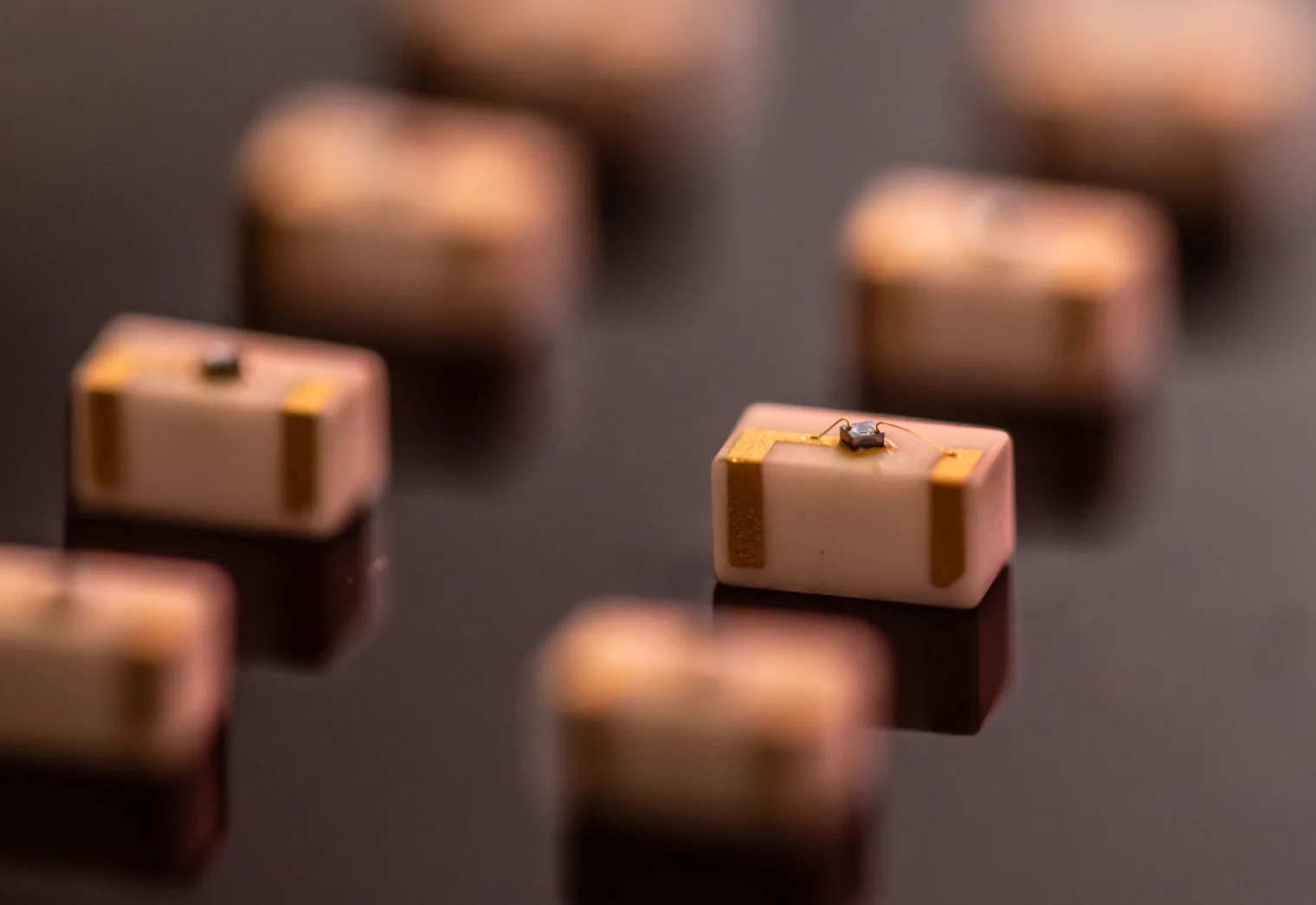Aura Noiseless InGaAs® APDs extend the range of Laser Range Finders, LiDAR, and OTDR systems.
Optimised for 1550 nm laser systems, the principal applications for Aura Noiseless InGaAs® APD APDs are laser range finders, LiDAR, and optical fibre test equipment - inparticular, Optical Time Domain Reflectometers (OTDRs).
In all these applications, the (up to) 12X sensitivity of the sensors enables extended operating range for a given laser power, or the benefits of lower laser power while maintaining range. Depending on the application and specific system design, the operating range is increased by up to 50%.
Laser Range Finders
High gain Noiseless InGaAs APDs offer resilient performance advantages across high optical dynamic range
Range finder detectors can experience high-power input pulses when an object enters the field of vision close to the detector. The APD must therefore withstand high levels of light input without overloading. It must also recover quickly so that a second pulse from an object close to that of the first can be detected. Phlux's Aura Noiseless InGaAs® APDs exhibit a dynamic range of greater than 110 dB and sub-1.5 µS recovery times†, a 6X improvement over traditional alternatives. Existing products can benefit from these performance improvements simply by replacing existing APDs with Phlux devices.
LiDAR
See further, see clearer
LiDAR is a key component of advanced driver assistance systems (ADAS) and autonomous vehicles (AVs). Here, 1550 nm lasers are increasingly preferred over 905 nm versions because they are “eye-safe”. The relatively poor sensitivity of traditional InGaAs APDs has necessitated the use of relatively high-power lasers in LiDAR systems, adding cost and complexity. Phlux’s Aura Noiseless APD® technology enables the use of lower-power lasers for a given LiDAR range, or the opportunity to extend the range by up to 50%. Alternatively, up to 12X better image resolution can be achieved for a given laser photon budget by increasing the pulse rate of the system.
OTDR and Fibre Sensing
More efficient and effective long-distance optical fibre testing
In OTDR applications, the choice of APD infrared sensor is important in determining the instrument’s functionality and accuracy. The APD’s sensitivity determines the operating range for a given laser output. As the instruments are used in extreme environments in the field, maintaining their performance over a wide temperature range is vital for detecting small anomalies in optical fibres. Future OTDRs using Phlux’s Aura Noiseless InGaAs® APD infrared sensors will have measurably better performance at no cost penalty. The performance improvements can be implemented in current models simply by replacing the existing APDs with Phlux devices.
